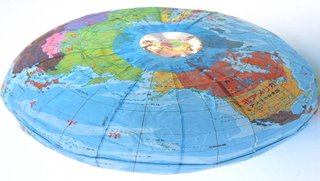Café LetztenEndes
Gesprächskreis zum Klimawandel und seinen Folgen
"If we don't work together, we are going to die together"
ROGER HALLAM - THE TIME IS NOW
Neuer TextGrundgesetz für die Bundesrepublik Deutschland
Art 1
(1) Die Würde des Menschen ist unantastbar. Sie zu achten und zu schützen ist Verpflichtung aller staatlichen Gewalt.
(2) Das Deutsche Volk bekennt sich darum zu unverletzlichen und unveräußerlichen Menschenrechten als Grundlage jeder menschlichen Gemeinschaft, des Friedens und der Gerechtigkeit in der Welt.
(3) Die nachfolgenden Grundrechte binden Gesetzgebung, vollziehende Gewalt und Rechtsprechung als unmittelbar geltendes Recht.
Art 20a
Der Staat schützt auch in Verantwortung für die künftigen Generationen die natürlichen Lebensgrundlagen und die Tiere im Rahmen der verfassungsmäßigen Ordnung durch die Gesetzgebung und nach Maßgabe von Gesetz und Recht durch die vollziehende Gewalt und die Rechtsprechung.

Lokal
Wir liegen hier am Rande der Geest in der Elbmarsch und leben im Geburtshaus des Einbaum-Weltumseglers Johannes Clauß Voß (1858–1922), Höhe über Normal Null liegt erwartbar bei 0-2m. Aber es ist nicht nur der Anstieg des Elbepegels innerhalb der nächsten Jahrzehnte der mich veranlasst hat diese treffen mit interessierten zu organisieren.

Regional
Im weitesten Sinne, worauf werden wir uns einstellen müssen. Wie wird sich Wohnen, Infrastruktur, Landwirtschaft, Industrie und Handwerk in naher Zukunft anpassen? Wird man die Deiche an Elbe und Nordsee beliebig erhöhen können und wer kennt nicht das Problem absackender Gebäudeteile durch zu lange trocken Perioden.
von Schlafschafen und 'drei Affen'
Wir haben hier Skudden in unmittelbarer Nachbarschaft. Eine kleine Herde mit vielen Lämmern. Wunderschön anzusehen. Mit welcher Freude insbesondere die Lämmer auf der Weide unterwegs sind. Ganz offensichtlich haben sie keine Zukunft im Kopf um die sie sich Sorgen müssten. Solange ausreichend Gras und Wasser vorhanden ist sind sie zufrieden, vielleicht sogar glücklich. Ähnliches gilt möglicherweise für viele Menschen in meinem unmittelbaren Umfeld. Die dramatischen Änderungen um sie herum, ein jeder gefangen in seinem gesellschaftlichen Hamsterrad, werden sie wohl erst sehen können wenn sie unmittelbar betroffen sind. Warum sollten sie sich mit noch mehr Problemen belasten wo sie doch in ihrer Welt den Umständen entsprechend glücklich oder auch nur froh sind, mit den alltäglichen Sorgen einiger massen klar zu kommen. Warum sie nun quälen mit unbequemen möglicherweise verstörenden Nachrichten? Ich glaube das nur mit informierten Menschen irgendwelche Änderungen herbeizuführen sind. Menschen die wissen worum es geht.
Jede unserer Entscheidungen ist eine Wahl. Statussymbole ja/nein,, grosses Auto, Haus, Swimmingpool, Fleisch ja/nein, fliegen, Urlaub, Konsum generell. Was fast allen die ich kenne nicht bewusst ist, ist das sie mit jeder dieser Entscheidungen nicht mehr nur auf sich und ihr direktes Umfeld Einfluss nehmen sondern auf die Lebensgrundlage jeglichen Lebens auf diesem Planeten.
Gretta Thunberg, the biggest and most dangerous misconception
'the biggest and most dangerous misconception is that people are aware of what is going on, that people know. but people don't know. if they would have known they would be pure evil. people arn't evil, they are just uninformed. if a football game gets more media coverage than the climate crisis and ecological crisis then people see that and think it is not that important when a football game is more important. we must make people aware and create opinion.'
Howard Zinn, To be hopeful
'To be hopeful in bad times is not just foolishly romantic. It is based on the fact that human history is a history not only of cruelty, but also of compassion, sacrifice, courage, kindness. What we choose to emphasize in this complex history will determine our lives. If we see only the worst, it destroys our capacity to do something. If we remember those times and places — and there are so many — where people have behaved magnificently, this gives us the energy to act, and at least the possibility of sending this spinning top of a world in a different direction. And if we do act, in however small a way, we don’t have to wait for some grand utopian future. The future is an infinite succession of presents, and to live now as we think human beings should live, in defiance of all that is bad around us, is itself a marvelous victory.'
Howard Zinn (24 August 1924 – 27 January2010) was an American historian, political scientist, playwright and social activist.
https://en.wikiquote.org/wiki/Howard_Zinn
Marty McCorkle, Life is too short for later
We currently pursue everyday lives of everyday concerns until the supply of 'everyday' runs dry, driven to extinction by climate change.
The last 'everyday' will be preserved in a display case for moralizing & reminiscing purposes, with wailing and gnashing of teeth ceremonies scheduled every Wednesdays at 4. The nostalgic among us will point to the last 'everyday' as representative of the 'Good Old Days', others will declare it 'Our Golden Age'. A few will call it 'Our Suicide Age'. Some will feel catharsis by just muttering "I told you so."
Call me a stick in the mud, but residence on a livable planet is convenient. But now doom is my duckwater. It rolls off my shiny feathers. My coffee tastes strange without a heaping helping of impending death, though more than the adult daily dose of death can be fatal, so consult your climatologist.
That favorite solution to many a problem, "Later", is almost out of runway. Life is developing later a Later shortage. We are at 'Peak Later'.
So do it now while Laters last. I wouldn't go so far as to suggest that one "live this day as if it were one last." My uncle did so, crying inconsolably upon arising before cheering up considerably after downing a third champagne at breakfast. Then he would give away his retirement home's furniture to strangers. This generosity gave him a spacious feeling, both in his heart and in his bedroom. And making a bed becomes a pleasant task when it's nowhere to be found. When his final day did arrive, it was for him like just other last day. He had already done the heavy lifting of organizing his life before its shutters closed for good.
With all the data readily available, one can see the train of industrial civilization is making good time (even when dragging the whole biosphere behind its caboose) to civilizatoin's final stop: Perdition. It's not about 'if' anymore. 'If' is the three card monty game of climate change denial, an old time swindle that only works on rubes. The reality of our dilemma is 'when'.
Go see Venice. Have that art exhibit. Compose that poem. Ask her out. Drop out of graduate school or finish graduate school, whichever you really want to do. Help others or finally learn to play "It's A Nice Day For A White Wedding" on the accordion. Write too long of comments on youtube. Perhaps continue to do what one is doing right now. Whatever flips your toupee, do it.
As best as you can, tailor your remaining time to fit your curves. By doing so, . Life is too short for later.

